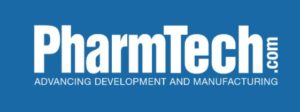Published Articles
Good Manufacturing Practice (GMP)
Maintaining good quality control practices throughout the entire manufacturing process requires robust GMP development, a drive toward product and process understanding, and pre-established, comprehensive written procedures that are consistently reviewed and updated.
Good manufacturing practice (GMP) is established by regulators to ensure that pharmaceuticals are safe and effective for the patients that rely on them.
21 CFR Parts 210 and 211
In the United States, requirements governing finished pharmaceutical quality are described in the Current Good Manufacturing Practices (CGMPs) regulations established by FDA and published in the Code of Federal Regulations (Title 21 of the CFR, parts 210–211 for most finished pharmaceuticals).
FDA also publishes guidance to further describe recommended practices for complying with the CGMP regulations. The agency states that “CGMPs provide for systems that assure proper design, monitoring, and control of manufacturing processes and facilities. Adherence to the CGMP regulations assures the identity, strength, quality, and purity of drug products by requiring that manufacturers of medications adequately control manufacturing operations” (1).
Quality Management
In Europe, GMPs are defined by the European Commission in EudraLex–Volume 4–Good Manufacturing Practice (GMP) guidelines (2), which were first published in 1989.
EudraLex states that quality management is “a system of marketing authorizations [that] ensures that all medicinal products are assessed by a competent authority to ensure compliance with contemporary requirements of safety, quality, and efficacy” (2).
GMP Certified
To harmonize GMPs and other quality requirements worldwide, the International Council for Harmonization (ICH) works with international regulators and industry to develop common guidelines across the industry to ensure consistent quality expectations worldwide.
“At its core, CGMP is a science- and risk-based focus on assuring drug quality. As described in ICH Q10, Pharmaceutical Quality System, an overall attitude to drive meaningful and continuous improvements from the quality unit and other manufacturing employees is essential” (3), FDA told Pharmaceutical Technology.
GMP Manufacturing
The global nature of the pharmaceutical supply chain requires regulatory agencies to inspect and govern GMPs at manufacturing facilities. These inspections sometimes result in actions by regulators (e.g., FDA 483s, warning letters, import bans, and court actions) against companies that fail to follow GMPs.
Common CGMP deficiencies cited by FDA in warning letters sent to pharmaceutical companies inspected during the past year include failures to ensure product sterility, ensure data integrity, create quality control units, and develop and follow written procedures (4–7).
GMP Practices
“Companies should vigilantly encourage GMP practices that reflect the most current and robust methods of processing and control, and with a focus on providing a quality product to US consumers,” says FDA.
“The approach to successful CGMP is not merely a check-box approach where a single obstacle can be identified, nor is it meant to be unchanged throughout the life of a product or a CGMP facility. Using a holistic and quality risk management approach, a manufacturer can select and study specific products and processes with the goal of continual improvement of product quality and quality systems and widespread optimization.”
Quality Culture
So how do companies ensure they are “vigilantly” following GMPs and avoid the wrath of regulators? The answer appears to be found in a company’s “quality culture” and in the development, writing, and following of written procedures. Performing pharmaceutical manufacturing according to GMPs involves a dedication to quality throughout development and manufacturing processes.
“Corporate management plays a vital role in this endeavor by establishing a commitment to quality, which includes providing sufficient resources and oversight for manufacturing operations. There are many elements to successful implementation of CGMPs but measuring and monitoring quality indicators and managing change are key among them,” says FDA.
GMP Certified
According to Susan Schniepp, distinguished fellow at Regulatory Compliance Associates, becoming GMP certified throughout all processes and procedures involves a combination of personnel training, keeping tools and equipment updated, having a strong quality unit, and developing a quality culture at all levels of the company.
“How the company goes about achieving this objective is what is critical. Traditional training may not be enough. There should be constant on-the-job training and oversight on a continual basis. Upgrading tools and equipment, especially computer-driven programs, needs to involve IT departments and adhere to the current data integrity concepts,” says Schniepp.
“No one element will be able to sustain GMPs. All the elements work together to establish a culture where sustaining GMPs is a priority.”
GMP Facility
Chris Moreton of FinnBrit Consulting agrees. “Too often, in my experience, certain factions in an organization think that quality is someone else’s responsibility. There may be an organizational chart that shows where the quality unit sits in an organization, but ‘quality’ (including GMP) is everyone’s responsibility within an organization; from the most senior to the most junior and vice versa.”
Management is key in creating a quality culture, says Moreton. “If the staff see the managers taking an interest and checking on things on a daily basis, the staff will respond, and they will try harder to get things right.”
Regulatory
A commitment to staying current with regulatory expectations is a must, according to Schniepp, and she warns that complacency is the biggest obstacle to maintaining GMPs.
“Once a process or procedure is established and functional, there does not seem to be the impetus to update and revise it as regulatory interpretation and understanding changes. This leaves the process or procedure compliant to outdated standards,” Schnieep says.
GMP Audit
Companies must also learn from prior mistakes, according to Mark Lynch, vice-president of Strategic Compliance. “It’s best to take the lessons learned from product experience and apply them to the culture overall so those lessons only need to be learned once. Those experiences should be continuously applied on the product level, and also used to make improvements to standard operating procedures (SOPs), policies, personnel, and technology.”
Problem solving is another technique that must be honed, according to Lynch. “Companies must also pay continuous attention to problem identification, solution, and improvement. Refinement of problem-solving techniques contributes to organizational learning.”
FDA cGMP
Enforcing quality procedures through a policy that ties failure to follow procedures with grounds for dismissal and using internal audits to detect improper performance are options to ensuring a quality culture, according to Lynch. “It is also important that tools are a regular topic of discussion with operators to capture improvements and assure consistency.
Additionally, sufficient supervisory presence and oversight are key both for monitoring purposes, and to be sure operators can raise questions and get the support they need. Finally, it’s best practice to put a GMP standard reporting mechanism in place that does not require identification, so employees feel comfortable flagging an issue without fear of blame,” he says.
GMP Quality
Companies who do not consistently maintain GMPs may find themselves under additional scrutiny by regulators for repeat offenses. A variety of FDA warning letters have pointed out repeat CGMP violations at companies and/or a particular facility (8, 9).
FDA reports that the agency, “… strives to provide clear guidance to companies proactively and in its enforcement actions. Where repeated violations have been found at the same facility or among different facilities of the same firm, we highlight those violations so that they may be addressed adequately.
Corrective Action
A focus on a commitment to quality is essential to correcting repeated violations, as are adequate corrective actions and procedures. While we generally encourage a focus on overall quality, there are times when we encourage firms to take specific actions, which are included in our warning letters as well as in applicable guidance documents and regulations.”
Repeated offenses may be a failure to look at the big picture and apply solutions across all systems and/or products, according to Schniepp. “Companies think in terms of solving the individual citation but fail to take that answer for change to a global look at fixing other processes and procedures that might be susceptible to the same observation. Tunnel vision when responding to warning letters has a great potential to result in repeat observations,” says Schniepp.
FDA Warning Letter
“Some of these ‘repeat mistakes’ are found to be FDA violations of the same section of the regulations but stem from a different problem. Investigators tend to use repeat findings as a way to point to simplified trends that make one issue appear to be really bad, rather than the complex combination of issues that it truly is,” Lynch says.
“Some companies lack the staff, procedures, capability, and time to fully investigate and solve problems, so they pick something (e.g., a personnel error), close the investigation, and move on to release product, and the same issue reappears because it wasn’t solved.”
Risk Management
Risk management and general cost increases can be another factor to repeated offenses, according to Moreton. “Often cost and/or short-term shareholder interests are used as an excuse to avoid some measures [to long-term change] … People complain that quality costs money, but if they really want to see how expensive things can be, they should try a consent decree.”
SOP Procedures
The lack of written procedures and/or a quality unit is another frequent infraction identified in warning letters. From October 2016 through September 2017, FDA issued more than 400 FDA 483 observations for a lack of written procedures or written procedures that were not fully followed (10).
Quality Program
Written procedures are key to a robust quality program, according to FDA and industry experts. FDA believes that the “most effective quality assurance (and compliance) strategies begin with robust internal procedures to adequately design and maintain a robust operation, and that can quickly identify and correct manufacturing problems when they occur.”
GMP Best Practices
What are best practices for developing written procedures for GMPs? While the agency does not endorse one particular approach to developing written quality procedures, FDA notes that these procedures should “be written to effectively communicate to the users of the procedure.
FDA recommends that the style and format of procedures be accessible to users, as well as ensuring adequate coverage of its purpose. We recommend that the effectiveness of a procedural training program be evaluated to ensure that personnel learn and can follow the procedures as intended.”
GMP Compliance
The trend in a GMP compliance failure to have written procedures is disturbing, according to Schniepp. She suggests that outsourcing quality, especially for start-up companies, may add to this problem. She questions whether outsourcing companies have the processes and procedures in place to handle new products.
Manufacturing Operations
A robust sharing of information between client and contract manufacturing organization is also key, including product and process understanding. “We need to also remember that new products, particularly in the biotech segment of the industry are novel in nature so the old way of doing business may not be applicable. Whatever the reason the industry must focus effort on making sure there are GMP lab processes, procedures, and written instructions in place that support the release of product,” Schniepp stresses.
Having all parties involved in the GMP labeling development of written quality procedures is necessary. “Including everyone affected by the procedure and writing the procedure with their input will result in streamlined and efficient procedures, which will be easier to maintain in the long run,” says Schniepp.
Standard Operating Procedure
Standard operating procedures (SOPs) written by people not familiar with the specific operation can cause disconnects, according to Lynch. “The best way to assure adequate SOPs is to sit down with people most familiar with operations and map out the process steps and handoffs. This can be incorporated graphically using [swim lane diagrams] and similar tools like Visio (Microsoft) and include them as part of the document.”
“In my opinion, in order to ensure that quality procedures are effective, it is necessary to involve those who know the process or operation being documented,” Moreton agrees. “This may mean sitting down with the operator and finding out exactly what is being done and how, not what management thinks should be done and how they think the operation(s) should be carried out.”
Operating Process
According to Schniepp, procedures should be mapped out, committed to paper, reviewed periodically, and updated as necessary. “Companies need to remember that their processes and procedures are not carved in stone and need to be changed to stay compliant with the operations being performed and the current interpretation of regulations,” says Schniepp. New technologies and new product types may necessitate an update to procedures.
Companies should be careful to not try and fit technology or product advances into current procedures but should instead take the time to review their processes and procedures and update them appropriately in responses to these advancements, she says.
FDA Process Validation
Consistent review of GMP procedures is important, especially if a change in equipment, facility, or regulatory requirements has occurred, experts note. “Written procedures should be reviewed and updated as often as needed. However, if a process and procedure is being updated frequently then it probably wasn’t very well written in the first place,” says Schniepp.
“This being said, procedures that are fairly stable should be validated at least every two years to make sure they are still current and reflective of FDA regulatory expectations.” When developing written procedures, says Lynch, “each process and procedure should be tailored to its specific purpose, so they don’t include unnecessary steps that add time to the process without applicable value to the procedure at hand.”
SOP Documents
Companies often lack the documentation that will help operators understand the entire GMP process, says Lynch. “The most important concept to remember when writing procedures is to include the detailed instructions for the operation or processes being defined by that procedure and not include extra explanatory or extraneous information that has no bearing on the operation or process being defined,” agrees Schniepp.
cGMP Consulting
In warning letters, FDA commonly suggests the hiring of a third-party GMP consultant to help companies address their GMP deficiencies. Schniepp says these consultants can provide a “fresh perspective” when resolving GMP issues. “A new and fresh approach is valuable because the consulting firm has no preconceived ideas and can offer new insight to what may seem to be an old and uncorrectable problem,” says Schniepp.
These consultants can be helpful even when not suggested by regulators “because they are looking at the quality with eyes not steeped in the corporate culture,” according to Moreton. Consultants also have knowledge and GMP expertise the company does not have.
“[Consultants] can offer a variety of approaches and suggestions for remediating current problems as well as offering solutions to maintain and improving systems moving forward. One of the most important aspects to consider when hiring a consulting firm is to make sure they not only have the expertise, but they also have the time to devote to fixing the problem,” says Schniepp.
Manufacturing & Industrial Consultant
When hiring a GMP consultant, Moreton suggests companies look at the experience of the contractor as a whole as well as the qualifications of the individual consultants “to ensure there is a good fit with the contractee’s needs.”
Lynch warns, however, that pharmaceutical companies should not rely too much on outside help. “Consultants can help companies get back on track if companies lack the resources internally. However, eventually companies have to sustain compliance themselves. Third-parties should provide expertise in the needed area and technology and have demonstrated success.
Then, they should be able to teach and mentor personnel for improved behaviors and provide flexible models to fit company operations and culture. Usually, this is more than one-time training, but a program of measurement and support over time.”
Article Details

Pharmaceutical Technology
Vol. 42, No. 7
Pages:18–23, 60
About RCA’s Pharmaceutical Consulting Services
Regulatory Compliance Associates (RCA) has helped thousands of pharmaceutical companies meet regulatory, compliance, quality assurance, and remediation challenges. With more than 20 years of experience with FDA, Health Canada, EU and global regulatory agencies worldwide, Regulatory Compliance Associates® offers leading pharmaceutical consultants. We’re one of the few pharma consulting companies that can help you navigate the challenges associated with industry regulations.
Our pharmaceutical consulting firm includes over 500 seasoned FDA, Health Canada & EU compliance consultants and regulatory affairs experts who understand industry complexities. It’s a pharma consultancy founded by regulatory compliance executives from the pharmaceutical industry. Every pharmaceutical industry consultant on the Regulatory Compliance Associates team knows the unique inner workings of the regulatory process.
Client Solutions
Whether you’re in the product planning, development or pharmaceutical lifecycle management stage or need a remediation strategy for a compliance crisis, Regulatory Compliance Associates will guide you through every pharmaceutical consulting step of the regulatory process. Our pharmaceutical consulting Experts will create a customized approach depending on your product and company’s individual needs. Our regulatory compliance clients include:
- Companies new to FDA, Health Canada or EU regulations and regulatory compliance
- Start-up organizations with novel submissions to 510(k) submissions from multi-national corporations
- Investment firms seeking private equity due diligence for pre-acquisition and post-deal research
- Law firms seeking pharmaceutical consulting firm expertise in the remediation of warning letters, consent decrees, 483’s or import bans
Regulatory Affairs
Regulatory affairs is Regulatory Compliance Associates backbone. We exceed other pharma consulting companies with industry experts experienced in complexities of the pharmaceutical and biopharmaceutical industries. Our pharma consulting expertise spans all facets and levels of Regulatory Affairs. Additionally, we specialize in Regulatory Support for New Products to Life Cycle Management, Outsourced Regulatory Affairs, Submissions, Training, and more.
As your partner, we can negotiate the potential assessment minefield of regulatory compliance services with insight, hindsight, and the clear advantage of our breadth and depth of knowledge and regulatory compliance consulting. We offer the following pharma consulting regulatory affairs services for pharmaceutical companies.
- New Product Support
- Product Lifecycle
- Other Regulatory Services
- Combination Products
Compliance Assurance
The regulations process surrounding pharmaceutical companies can be tricky for even the most experienced industry veteran to understand. Just one misstep could mean significant and lasting consequences for your business. At Regulatory Compliance Associates, we offer the pharma consulting experience and pharma consultants necessary to guide you through the quality compliance process.
- Assessments
- Audits
- Regulatory Agency Response
- Preparation and Training
- Inspection Readiness
- Data Integrity
Quality Assurance
Regulatory Compliance Associates Quality consulting includes assessments, strategy, implementations, staff augmentations, and identification of quality metrics to ensure continuous improvement. Our pharma consultants understand the strategic thinking needed to align your business needs and goals. Regulatory Compliance Associates quality assurance services include quality experts with experience spanning major corporations and start-ups. Our pharmaceutical consulting firm knows firsthand how to achieve, maintain, and improve quality. Finally, our regulatory compliance services team excels in transferring continuous improvement knowledge to your organization.
- 21 CFR Part 11
- Data Integrity
- Manufacturing Support
- Facility Support
- Quality Metrics
Remediation Services
Regulatory Compliance Associates has a proven remediation services approach to managing FDA Warning Letters, Consent Decrees, Remediation and other serious regulatory situations. Our pharma consultants know how to partner with executive, legal, and communication teams. Each RCA pharma consulting Expert will develop a response that will be accepted by the regulatory agency and be realistic to execute.
Regulatory Compliance Associates pharma regulatory consultants will develop a comprehensive proof book of documented evidence demonstrating the corrective action taken to remediate non-compliant issues. In addition, each Regulatory Compliance Associates pharma consulting Expert understands compliance enforcement. We’ll prepare a comprehensive pharma consulting strategy to assist in your remediation efforts, drive continuous improvement, and maintain regulatory compliance with the regulations.
- Regulatory Action
- Regulatory Compliance
- Regulatory Enforcement
- Warning Letter
- 483 Observation
- Oversight Services
- Risk Management Plan
About Regulatory Compliance Associates
 Regulatory Compliance Associates® (RCA) provides pharmaceutical consulting to the following industries for resolution of life science challenges:
Regulatory Compliance Associates® (RCA) provides pharmaceutical consulting to the following industries for resolution of life science challenges:
- Life Sciences
- Pharmaceutical
- Biologic & Biotechnology
- Sterile compounding
- Medical device
- Lab Testing
We understand the complexities of running a life science business and possess areas of expertise that include every facet of R&D, operations, regulatory affairs, quality, and manufacturing. We are used to working on the front lines and thriving in the scrutiny of FDA, Health Canada, MHRA and globally-regulated companies.
As your partners, Regulatory Compliance Associates can negotiate the potential minefield of regulatory compliance and regulatory due diligence with insight, hindsight, and the clear advantage of our unique expertise and experience.
- Founded in 2000
- Headquartered in Wisconsin (USA)
- Expertise backed by over 500 industry subject matter experts
- Acquired by Sotera Health in 2021
About Sotera Health
The name Sotera Health was inspired by Soteria, the Greek goddess of safety, and reflects the Company’s unwavering commitment to its mission, Safeguarding Global Health®.
Sotera Health Company, along with its three best-in-class businesses – Sterigenics®, Nordion® and Nelson Labs®, is a leading global provider of mission-critical end-to-end sterilization solutions and lab testing and advisory services for the healthcare industry. With a combined tenure across our businesses of nearly 200 years and our industry-recognized scientific and technological expertise, we help to ensure the safety of over 190 million patients and healthcare practitioners around the world every year.
We are a trusted partner to 5,800+ customers in over 50 countries, including 40 of the top 50 medical device companies and 9 of the top 10 pharmaceutical companies.
Commitment to Quality
Our Certificate of Registration demonstrates that our Quality Management System meets the requirements of ISO 9001:2015, an internationally recognized standard of quality.
To begin the Regulatory Compliance Associates scoping process today, please enter your information in the blue form below and click the submit button at the bottom of the webpage.
Connect with RCA Today
Contact us to learn more about our regulatory compliance experts and how they can help



















